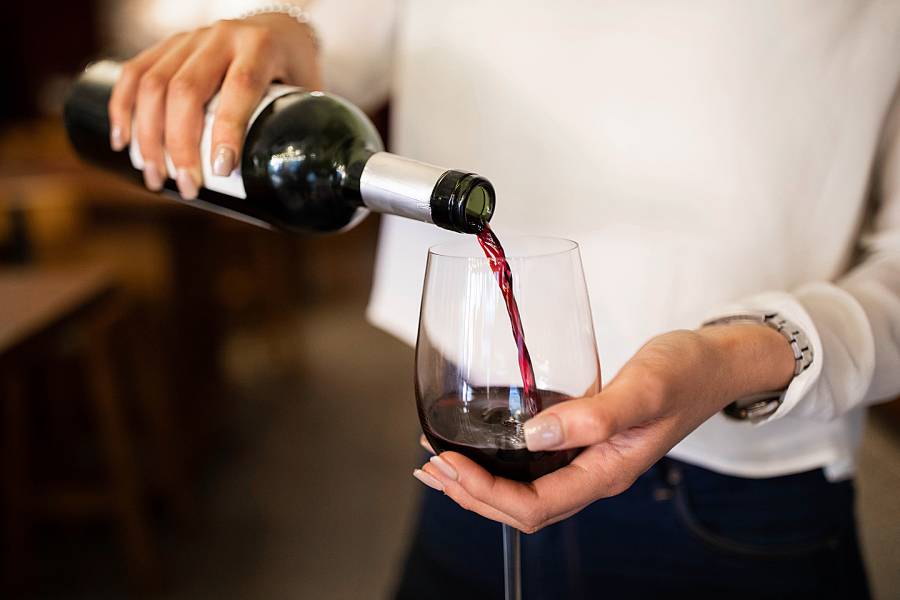This content is provided to Johns Hopkins employees in partnership with Aetna Resources for Living.
In a "normal" year, the holidays can be difficult for many, but the stress of the COVID-19 pandemic is taking an unprecedented toll on physical and mental health. This year, people may find they want to indulge a little more in alcohol or substance use to numb the pain, but when does social use become an addiction? Sometimes, the differences between social use, substance abuse, and addiction are obvious; sometimes they're subtle, but if you look closely, they're always there.
Social drinking and drug use
Most people who drink alcohol are social drinkers, and most people who use drugs are social users. Social drinkers and drug users:
- Drink or use simply to enhance normally pleasurable experiences, and that's what happens.
- Don't experience problems of any kind associated with drinking or using.
- Never feel out of control or that they've had too much to drink or use.
- Don't think about how much or how often they drink or use; it's just not an issue.
- Never get complaints about how much or how often they drink or use because there's nothing to complain about.
Alcohol and drug abuse
Some people who drink alcohol and/or use drugs become substance abusers. Alcohol and substance abusers:
- Use alcohol or drugs to help them change the way they feel about themselves and/or some aspect(s) of their lives.
- Recognize problems associated with their alcohol or drug use but let those experiences set appropriate limits on how much and how often they drink or use.
- Seldom, if ever, repeat the alcohol- and drug-related behaviors that have caused them problems in the past.
- Know what their limits are and drink or use within those limits—unless they have a good reason not to.
- Get complaints about their drinking or using and accept those complaints as expressions of concern for their well-being.
Alcoholism and drug addiction
Some who drink alcohol and/or use drugs become alcoholics and/or drug addicts. Alcoholics and drug addicts:
- Experience negative consequences associated with drinking or using but continue to drink or use despite those consequences.
- Set limits on how much or how often they will drink or use but unexpectedly exceed those limits.
- Promise themselves and/or others that they will drink or use in moderation but break those promises.
- Feel guilty or remorseful about their drinking or using but still fail to permanently alter the way they drink or use.
- Get complaints about their drinking or using and resent, discount, and/or disregard those comments and complaints.
Substance abusers may not need to abstain completely from the use of alcohol and drugs, but they need to deal with the problems and issues that make them want to change the way they feel, even if it means getting professional help.
Alcoholics and addicts need to abstain completely from all addictive and potentially addictive mood- and mind-altering substances, and they will almost surely need professional help and/or support to accomplish that goal.
Help is here for you. You can reach mySupport 24/7, 365 days a year, by phone at 443-997-7000 or online; for online access, you will need to use JHU as both the username and password. There's even a mobile app, giving you access to mySupport wherever you are.
You also may want to join the webinar titled Coping and Thriving: Healthy Coping Strategies for the New Year from 4 to 5 p.m. on Wednesday, Dec. 16. Hear how unhealthy alcohol/substance use can lead to addiction and learn healthier coping skills to start the new year right.
Posted in Health+Well-Being
Tagged hr newswire








